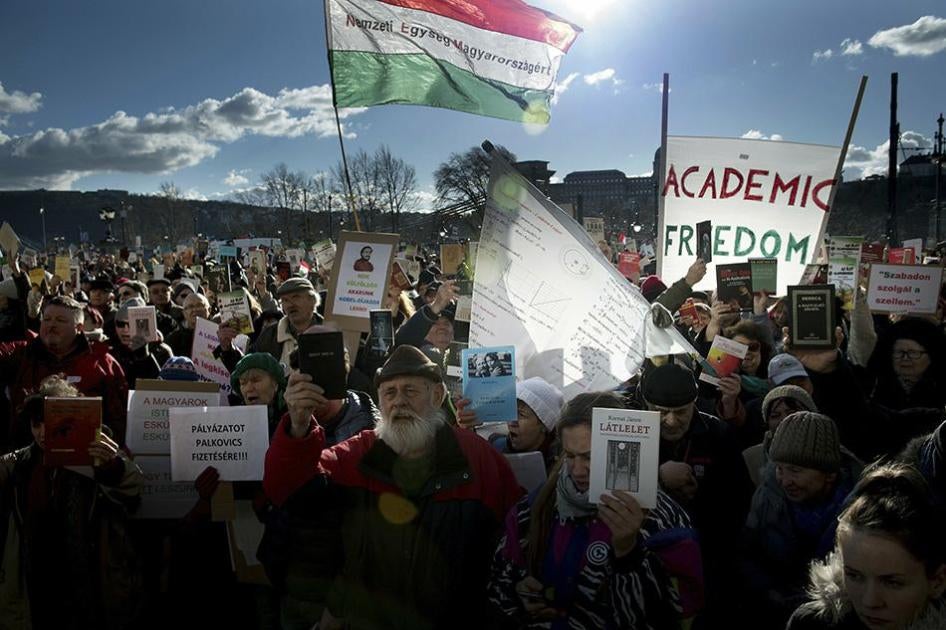Academic freedom in Hungary suffered a fresh blow Tuesday, when the parliament, where ruling party Fidesz has a two-thirds majority, adopted a controversial bill undermining the independence of the Hungarian Academy of Sciences. The country’s president is expected to sign it into law.
The Academy, comprised of distinguished scientists and intellectuals, has a research network of 15 institutes and 150 research groups comprising about 3,000 scientific researchers. The new bill will increase state control over the Academy by removing the 15 research institutes from the main academy and placing them in a newly established state research network (Eotvos Lorand Kutatasi Halozat).
The state research network will have a new governing board with members appointed by Prime Minister Viktor Orban, and a majority nominated by the government. The board will decide on funding and appoint directors for each research institute. The changes will allow the government to shape what types of scientific projects will be funded rather than the Academy independently making those decisions.
Emese Szilagyi, Scientific Secretary of the Institute for Legal Studies at the Academy of Sciences, told Human Rights Watch that among Academy researchers, there is fear the Academy won’t be free to choose research topics but may be forced to conduct research in fields the government wants and be expected to provide findings that support their preconceived theses.
The government’s recent campaign to ban academic gender studies in Hungary and its move to force Central European University out of the country suggests this fear is well founded.
These moves highlight the government’s wider efforts to silence critical voices and discourage independent thought.
These worrisome developments, part of the broader rule of law backslide in Hungary, underscore the importance of the political sanctions process against Hungary’s government triggered by the European Parliament last year under Article 7 of the EU treaty.
The next step is for the EU Council of member states to scrutinize Hungary’s record, but the Council has yet to have a hearing on the matter. The incoming Finnish presidency should schedule a Council hearing on Hungary as soon as possible.










